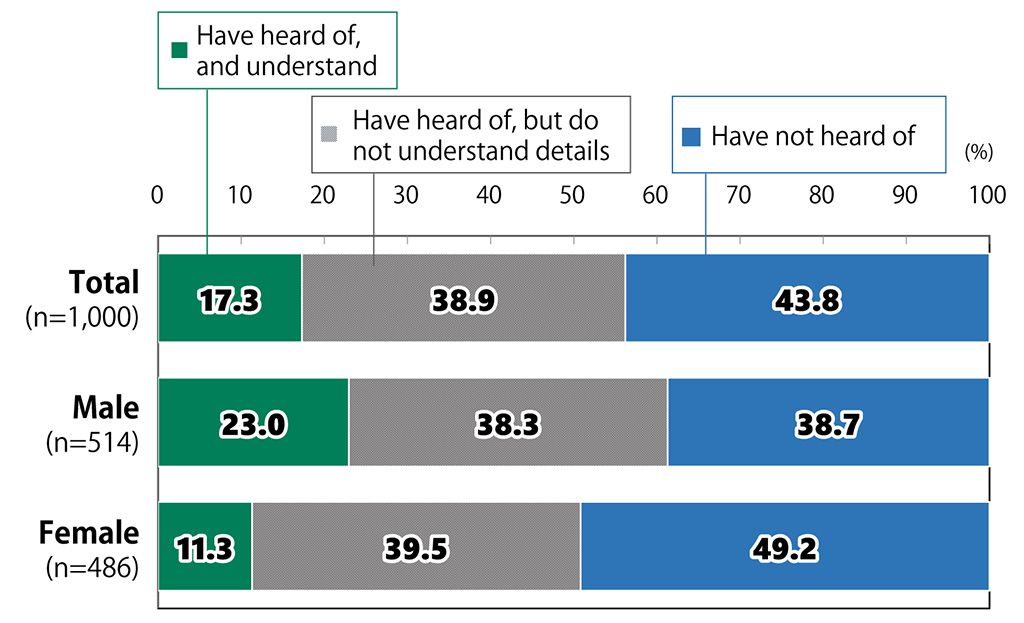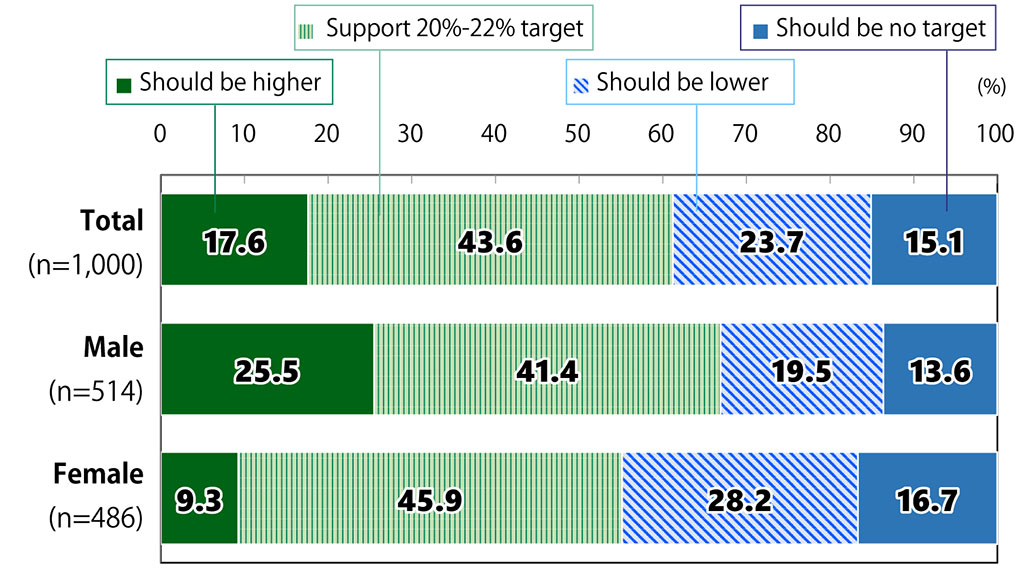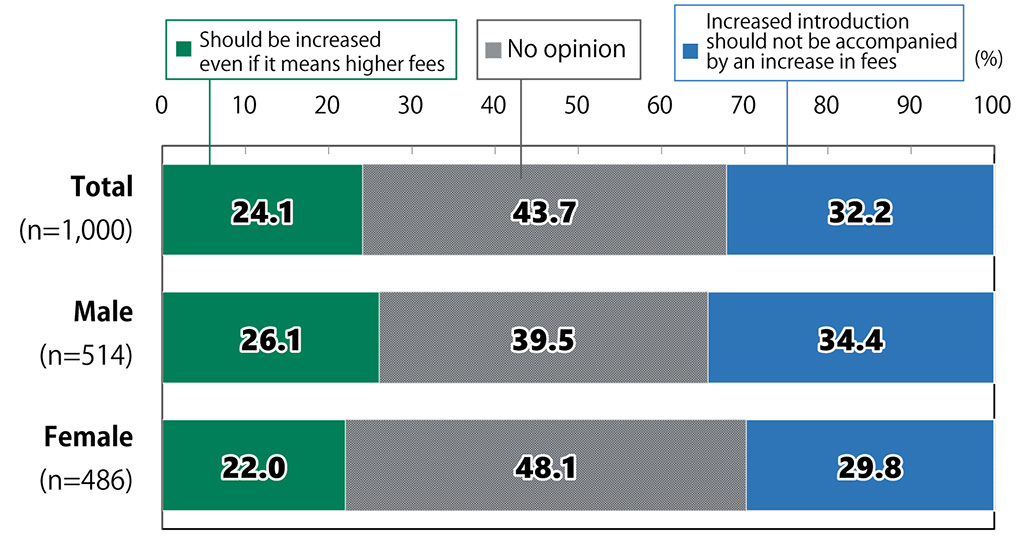Awareness Survey of 18-Year-Olds – EnergyResults of 48th installment announced
The 48th installment of the Awareness Survey of 18-Year-Olds, launched by The Nippon Foundation in October 2018, was carried out from July 29 to August 2 on the subject of “Energy.” The survey of 1,000 respondents in Japan aged 17 to 19 was intended to examine young people’s thinking and response to energy shortages and energy policy in light of the government’s request for reduced electricity consumption during the summer and policy for the full-fledged restart of nuclear power plants.
The results are as outlined below. While a majority of respondents were taking concrete actions to conserve electricity, less than 20% understood the reward points system the government has introduced to promote electricity conservation. A tendency toward prioritizing stable energy supplies was also seen, with a majority of respondents approving of nuclear power accounting for a larger portion of the country’s electrical power generation.
Highlights of the 48th Awareness Survey of 18-Year-Olds – Energy
Efforts to conserve electricity
- Taking steps on a daily basis – 67.0%
- Government calls have been effective in “increasing interest (in electricity conservation)” – 39.2%
- “Have heard of, and understand” reward points system for electricity conservation – 17.3%
Interest in Japan’s energy policies
- “Very interested” + “Somewhat interested” – 54.4%
Knowledge of Japan’s low primary energy self-sufficiency
- “Know the specific level” + “Don’t know specific level, but know that self-sufficiency is low” – 69.7%
Support for increasing percentage of electricity generated by nuclear power by 2030
- Agree with the 20%-22% target contained in government’s Sixth Strategic Energy Plan or want higher figure – 61.2%
Introduction of renewable energy should be promoted even if it means higher fees paid by households
- Support – 24.1%
- Oppose – 32.2%
Three most promising measures for reducing greenhouse gas emissions (“Very promising” + “Somewhat promising”)
- Introduction of renewable energy for public transportation – 55.8%
- Environmentally friendly urban development – 55.1%
- Forestation and urban greening – 55.0%
Top three automobile preferences for car purchase / car sharing
- Electric vehicle – 25.3%
- Gasoline engine – 20.2%
- Plug-in hybrid – 13.8%
- * Do not use an automobile – 31.8%
Survey Excerpts



Notes:
- From the 13th survey, the number of respondents, comprising men and women aged 17 to 19, has been increased to 1,000 from 800.
- With the exception of the 20th and 46th installments, “Awareness Survey of Society and Country,” all surveys cover respondents in Japan only.
Contact
Public Relations Team
The Nippon Foundation
- Email: cc@ps.nippon-foundation.or.jp



